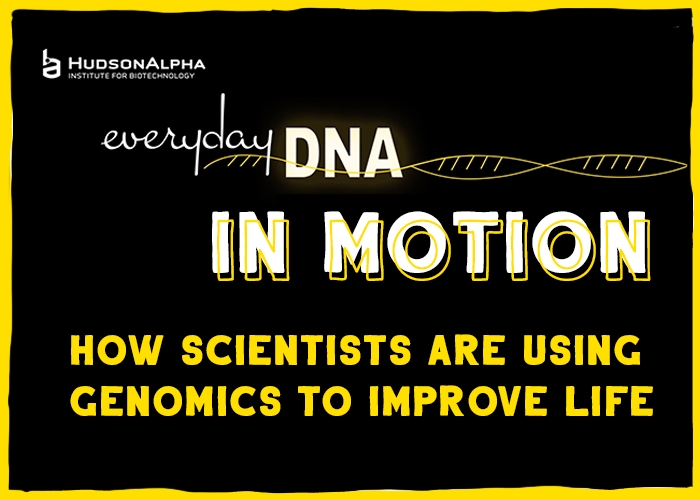Huntsville, Ala. — HudsonAlpha Institute for Biotechnology has been awarded a two-year, $2 million grant by the National Institute of Mental Health (NIMH) to research how transcription factors – key proteins that regulate the expression of genes – function in the brain. An important emphasis will be in understanding how these proteins are related to bipolar disorder, schizophrenia and major depressive disorder. HudsonAlpha President and Science Director, Richard M. Myers, PhD, and Faculty Investigator Greg Cooper, PhD, are leading the project, and are collaborating with researchers at the University of California at Irvine and the University of Michigan in this work.
“We know that psychiatric disease is very complicated, with both genetic and environmental factors playing significant roles,” said Myers. “We’ve seen in other projects that people who suffer from these disorders have different transcription factor activity in the brain, and we want to use that information to identify whether these proteins could contribute to the risk of psychiatric disease.”
Transcription factors are proteins that bind to DNA and help turn specific genes on or off. They regulate when the DNA sequences adjacent to genes are used to generate RNA on the way to making a protein. The HudsonAlpha project has two major components to research transcription factors in the brain. First, researchers will apply previously developed technologies to map where transcription factors bind to DNA in different regions across the brain. Then, HudsonAlpha scientists can use these data to analyze how transcription factor activity may be different between individual people as well as how such activity may vary between different regions of the brain in any one individual.
“Ultimately, we hope the data from this transcription factor analysis will allow us to understand basic molecular functions in human brains and eventually to better understand the differences between people with and without psychiatric disease,” said Cooper. “These data may point to genes or pathways with diagnostic, prognostic or therapeutic value.”
Research reported in this publication was supported by the National Institute Of Mental Health of the National Institutes of Health under Award Number R01MH110472. The content is solely the responsibility of the authors and does not necessarily represent the official views of the National Institutes of Health.
About HudsonAlpha: HudsonAlpha Institute for Biotechnology is a nonprofit institute dedicated to innovating in the field of genomic technology and sciences across a spectrum of biological challenges. Opened in 2008, its mission is four-fold: sparking scientific discoveries that can impact human health and well-being; bringing genomic medicine into clinical care; fostering life sciences entrepreneurship and business growth; and encouraging the creation of a genomics-literate workforce and society. The HudsonAlpha biotechnology campus consists of 152 acres nestled within Cummings Research Park, the nation’s second largest research park. Designed to be a hothouse of biotech economic development, HudsonAlpha’s state-of-the-art facilities co-locate nonprofit scientific researchers with entrepreneurs and educators. The relationships formed on the HudsonAlpha campus encourage collaborations that produce advances in medicine and agriculture. HudsonAlpha has become a national and international leader in genetics and genomics research and biotech education, and includes more than 30 diverse biotech companies on campus. To learn more about HudsonAlpha, visit hudsonalpha.org.
Media Contact:
Margetta Thomas
mthomas@hudsonalpha.org
256-327-0425


